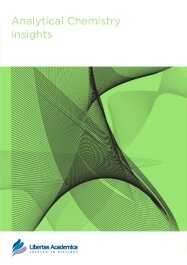

Publication Date: 02 Sep 2008
Journal: Analytical Chemistry Insights

Microalbuminuria is associated with hypertension and is a strong risk factor for subsequent chronic disease, both renal and coronary heart disease (CHD), Presently there are several methods available for measurement of microalbuminuria. The aim of this study was to evaluate if the three different methods gave similar information or if one of the assays were superior to the others. Blood pressure, inflammatory markers and cardiovascular mortality and morbidity were correlated with urine albumin analysed with a point-of-care testing (POCT) instrument, nephelometric determination of albumin and albumin/creatinine ratio in elderly males. The study population consisted of 103 diabetic and 603 nondiabetic males (age 77 years) in a cross-sectional study. We analyzed urine albumin with a HemoCue® Urine Albumin POCT instrument and a ProSpec® nephelometer and albumin/creatinine ratio. There were strong correlations between both systolic and diastolic blood pressure and all three urine albumin methods (p < 0.0001). There were also significant correlations between the different urine albumin measurements and serum amyloid A component, high-sensitivity C-reactive protein and interleukin-6. The three different urine albumin methods studied provided similar information in relation to cardiovascular disease. There was a strong correlation between systolic and diastolic blood pressure and microalbuminuria in both the whole study population and in nondiabetic males emphasizing the role of hypertension in glomerular damage. The good correlation between the studied urine albumin measurements show that all three methods can be used for monitoring urine albumin excretion.
PDF (237.44 KB PDF FORMAT)
RIS citation (ENDNOTE, REFERENCE MANAGER, PROCITE, REFWORKS)
BibTex citation (BIBDESK, LATEX)
XML
PMC HTML

I have published more than thirty research papers in internationally reputed high impact factor journals including Libertas Academica publications, Proteomics Insights and Analytical Chemistry Insights. I have no hesitation in saying that Proteomics Insights is highly efficient for its rapid and high quality review process and keeping the authors informed at each stage of the publication process. I recommend this journal for students, teachers and research workers who wish to publish their work. ...

All authors are surveyed after their articles are published. Authors are asked to rate their experience in a variety of areas, and their responses help us to monitor our performance. Presented here are their responses in some key areas. No 'poor' or 'very poor' responses were received; these are represented in the 'other' category.See Our Results
Copyright © 2013 Libertas Academica Ltd (except open access articles and accompanying metadata and supplementary files.)
FacebookGoogle+Twitter
PinterestTumblrYouTube